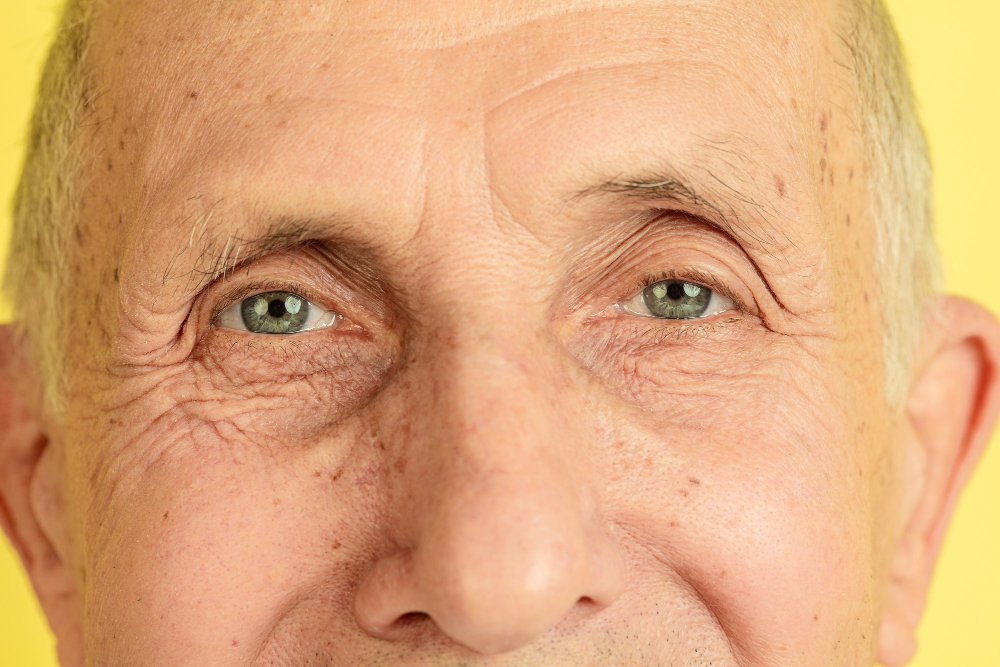Age-related Macular Degeneration (AMD) is a progressive eye condition that affects millions of people worldwide, particularly those over the age of 50. It is one of the leading causes of vision loss in older adults. Despite its prevalence, many individuals are unaware of the risks and impact of AMD on their vision and overall quality of life. In this blog, we’ll delve into the details of AMD, including its causes, symptoms, and available treatment options.
What is Age-Related Macular Degeneration?
The macula is a small but crucial part of the retina responsible for central vision, which enables us to see fine details clearly. Age-related macular degeneration occurs when the macula deteriorates over time, leading to a loss of central vision. There are two main types of AMD: dry AMD and wet AMD.
- Dry AMD: Dry AMD is the more common form and typically progresses slowly. It occurs when the macula thins and breaks down, resulting in drusen, which are yellow deposits that accumulate beneath the retina. Over time, these changes can lead to a gradual loss of central vision.
- Wet AMD: Wet AMD is less common but more severe. It occurs when abnormal blood vessels grow beneath the retina and leak fluid and blood, causing rapid and severe damage to the macula. Without prompt treatment, wet AMD can lead to significant vision loss.
Causes and Risk Factors
While the exact cause of AMD remains unclear, several factors can increase the risk of developing the condition:
- Age: As the name suggests, age is the most significant risk factor for AMD. The prevalence of AMD increases with advancing age, particularly after the age of 50.
- Genetics: Family history plays a role in AMD, with individuals having a close relative with the condition being at a higher risk.
- Smoking: Smoking significantly increases the risk of developing AMD and can worsen the progression of the disease.
- Diet and Lifestyle: A diet high in saturated fats and low in antioxidants, as well as obesity and sedentary lifestyle, may contribute to the development of AMD.
Symptoms of Age-Related Macular Degeneration
In the early stages, AMD may not cause noticeable symptoms. However, as the condition progresses, individuals may experience:
- Blurred or distorted central vision
- Difficulty reading or recognizing faces
- Increased sensitivity to glare
- Decreased contrast sensitivity
- Visual hallucinations (in advanced stages of wet AMD)
Treatment Options
While there is currently no cure for AMD, several treatment options are available to help manage the condition and slow its progression:
- Lifestyle Modifications: Adopting a healthy lifestyle, including a balanced diet rich in antioxidants, regular exercise, and smoking cessation, can help reduce the risk of AMD progression.
- Nutritional Supplements: Studies have shown that certain vitamins and minerals, such as vitamins C and E, zinc, copper, and lutein/zeaxanthin, may help slow the progression of AMD when taken as supplements.
- Anti-VEGF Therapy: For individuals with wet AMD, anti-vascular endothelial growth factor (anti-VEGF) injections can help reduce abnormal blood vessel growth and prevent further vision loss.
- Photodynamic Therapy (PDT): PDT involves using a light-sensitive drug and laser therapy to target and destroy abnormal blood vessels in the eye.
- Low Vision Aids: Devices such as magnifying glasses, telescopic lenses, and electronic magnifiers can help individuals with AMD make the most of their remaining vision.
Conclusion
Age-related macular degeneration is a serious eye condition that can significantly impact an individual’s vision and quality of life. While there is no cure for AMD, early detection and prompt intervention can help slow its progression and preserve remaining vision. By understanding the risk factors, symptoms, and available treatment options for AMD, individuals can take proactive steps to protect their vision and maintain their independence as they age.
If you’re experiencing any changes in your vision or have concerns about AMD, don’t hesitate to schedule a comprehensive eye examination with your eye care professional at Tayani Institute. Early detection and intervention are key to managing AMD and preserving your sight for years to come.


